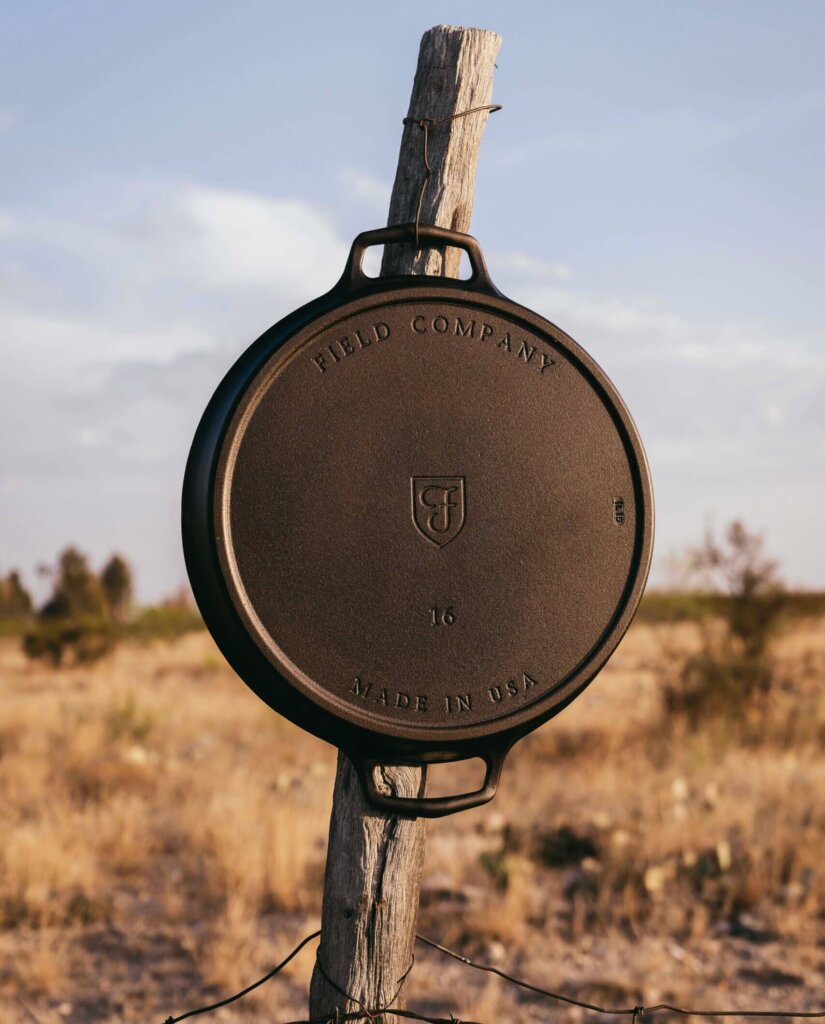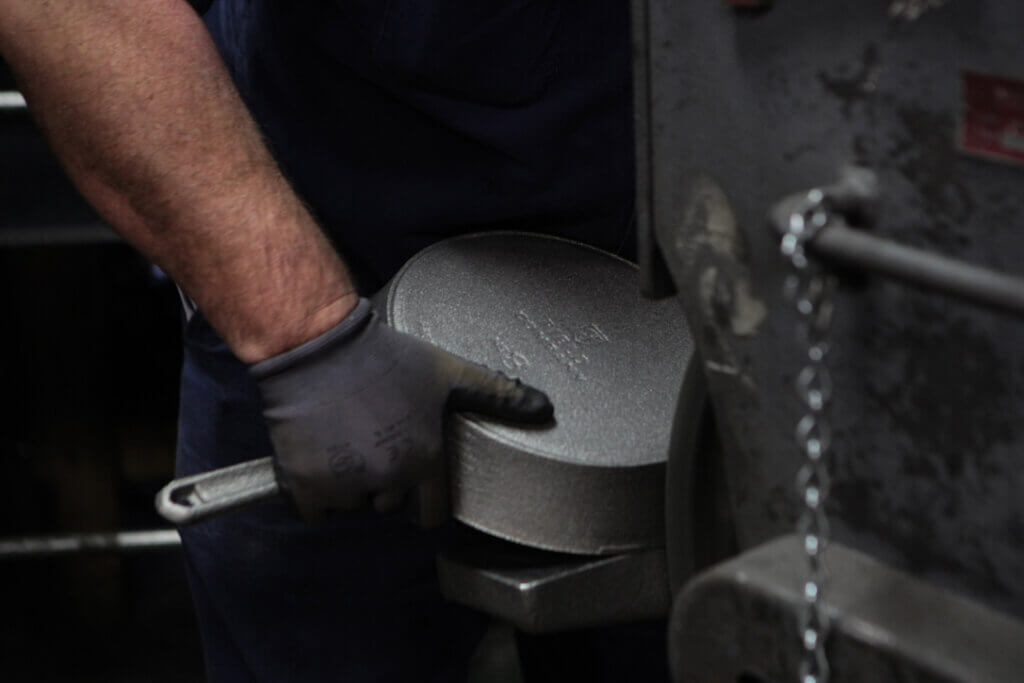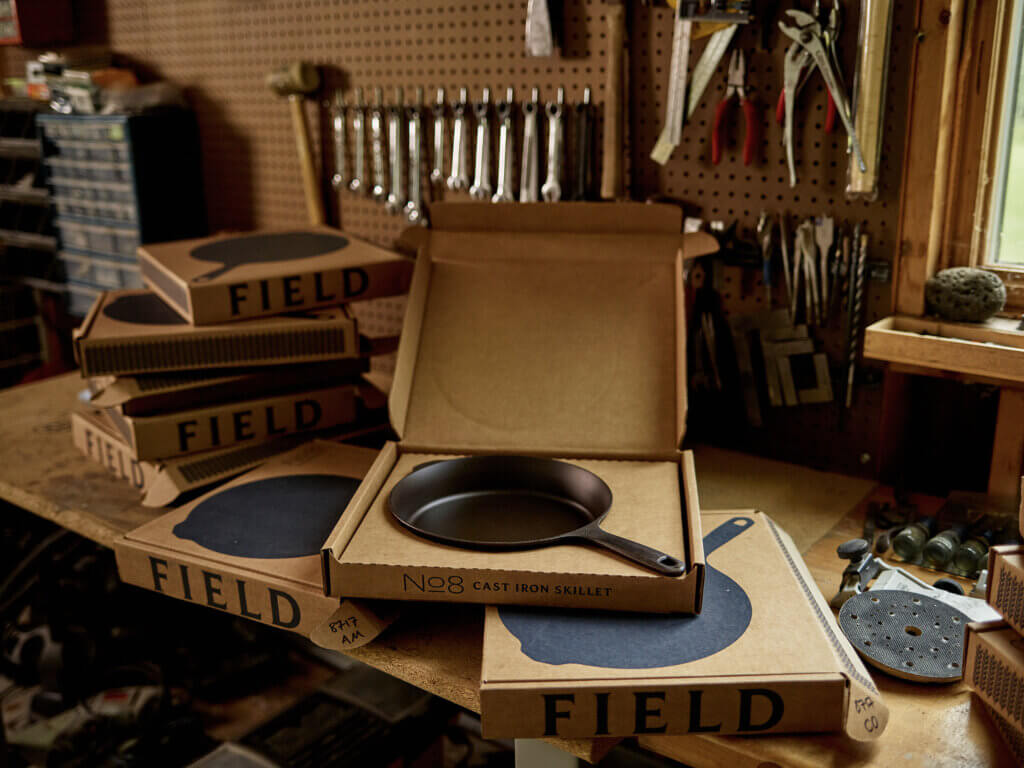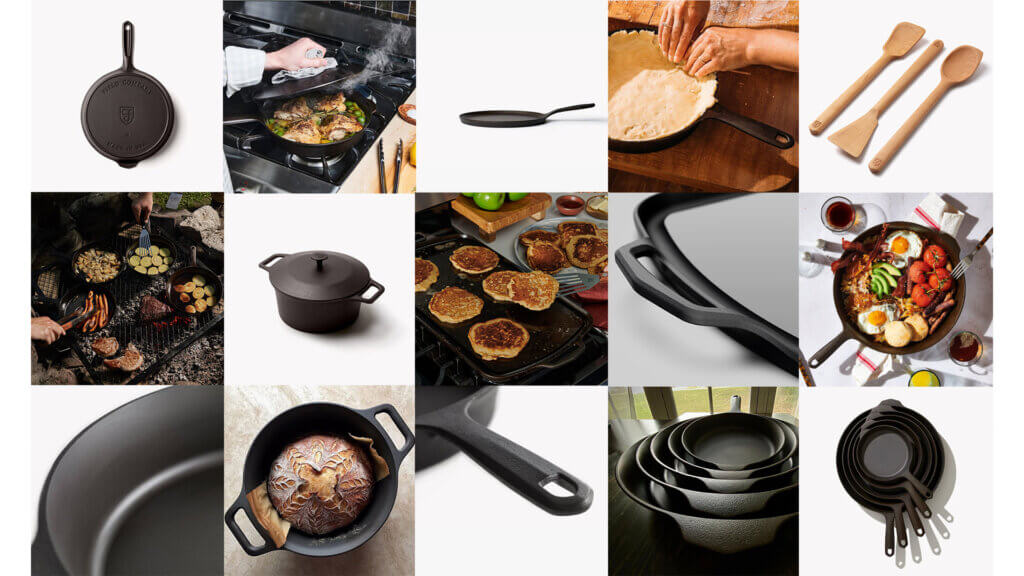Cooking up American manufacturing with Field Company

Photo by Travis Perkins
I’ve been running Prime Studio, a product and brand design consultancy based in NYC, for over 27 years. We work in a diverse range of markets, so over that time, I’ve worked with manufacturing vendors all over the world, including in China, Japan, Vietnam, Turkey, Italy, Germany, and also domestically here in the USA.
I’ve been keeping up to speed with developments at informal since we first worked with them back in 2021. For a small team like us, they’re a great resource to bring on board specialist help on projects. We’re also pretty excited about their CMF (color, material, finish) database.
I recently read Sam’s article “What can (actually) be made in the USA?” with great interest and, while I agree with a lot of what he says, I think he also overlooked a few product categories that are not only surviving, but are thriving here in the States.
One of the categories that still has a successful domestic manufacturing base is cookware: Lodge, Viking, All Clad, and Nordic Ware are some of the successful major brands that make the bulk of their products here in the USA.
There are also a slew of newer high-end cast iron cookware companies that also manufacture here, including a brand that we designed, Field Company. On the surface, a cast iron pan looks like a deceptively simple product, but the Field Company manufacturing process is actually highly technical.
Field Company was founded by two brothers, Stephen and Chris Muscarella, and their vision was to make cast iron pans that have the same qualities as their grandmother’s vintage collection: lightweight, smooth non-stick finish and, of course, classic designs.
The issue is that those vintage pans were made in molds where skilled artisans hand-packed the sand. They used coarser-grade sand for the bulk of the mold and the finest-grade sand (often from the shores of a lake) for the parts that became the cooking surfaces — that’s why those vintage pans are so smooth and a delight to cook with.
Nowadays, most commercial foundries in the USA use automated casting machines. They’re great for production efficiency and reducing defects, but they have some drawbacks. One is that the sand is reused over and over, which means the same coarseness of sand everywhere in the mold — no more smooth cooking surface. The second is that they can only be cast to a minimum wall thickness of 5 or 6 mm, which makes the pan very heavy and not really suitable for everyday use.

Fun fact #1: I started my career as an engineer working in a steelworks in Sheffield, England, so the first thing I said when we got the project was I have to go to the foundry to see how they do it.
We solved the problems of automated cast parts with Field Company by utilizing a post casting machining process. Their pans are cast at a foundry in Wisconsin and then shipped to a machine shop in Indiana that specializes in finishing castings, where the interior cooking surfaces are CNC lathed. From a design perspective, this gives us a lot of possibilities.
We can reduce the weight of the pan but also control where we want the weight: thicker bottom for better heat retention and no hot spots and thinner side walls where less metal bulk is needed. An “as cast” #8 Field Company skillet weighs around 8.3 lbs, but the final product weighs only 4.3 lbs. The other bonus is that we can control the smoothness of the cooking surface by adjusting the machining heads. You might think that the smoother the better, but that’s not the case — I’ll get to that in a minute.
Fun fact #2: As a process nerd, watching those skillets whizz around on a high-speed CNC lathe is a thing of beauty.
Finally the machined pans are shipped to another facility in Indiana whose speciality is coatings. Field Company pans are seasoned with three coats of organic grapeseed oil, which is 100% nontoxic. Seasoning is a process where the oil is bonded to the surface of the pan through a process called polymerization, which is conducted under high heat.
The high temperature causes the oil to bond with the iron and form a tough, carbonized layer. This layer fills in the microscopic pores in the iron, which is what gives you a smooth, hydrophobic nonstick surface. This is where the right surface smoothness plays a part. To build up a great nonstick seasoning, the oil needs to have some “tooth” to bond to. If it’s too smooth, the first layer of oil can’t create a durable bond.
Fun fact #3: There’s no fun fact from this factory – all of the magic happens inside high temperature ovens, so there’s nothing to see!
Finally, the pans are packaged and shipped directly to the customer, ready to cook right out of the box.

The success of Field Company is made possible thanks to the various skilled manufacturing specialists that contribute to the final product. It’s a simple product, but it’s certainly not simple to make and get it right.
I asked Stephen, one of the Field Companies cofounders about his reason to go down the Made in the USA path, and he responded:
“Initially, it was about quality control and wanting to be hands-on in the development process, but over time, our manufacturing partners have become deeply invested collaborators. Our relationships have evolved from transactional to highly engaged, with the vendors taking personal pride in their work, which has positively impacted product quality and employee engagement. I don’t think that would’ve been possible with overseas vendors.”
Personally, I’m proud to have been part of this journey from 2015 and to see the employment it has brought to the heartland of the USA. It also means a lot that every single piece of cast iron cookware that Field Company sells has been through the Prime Studio design process.
I hope this story shows that America can still produce world-class products (with a little perseverance). Made in the USA is not going to be the right choice for every type of product, but companies shouldn’t automatically assume that Asian manufacturing is the only option.

informal is a freelance collective for the most talented independent professionals in hardware and hardtech. Whether you’re looking for a single contractor, a full-time employee, or an entire team of professionals to work on everything from product development to go-to-market, informal has the perfect collection of people for the job.